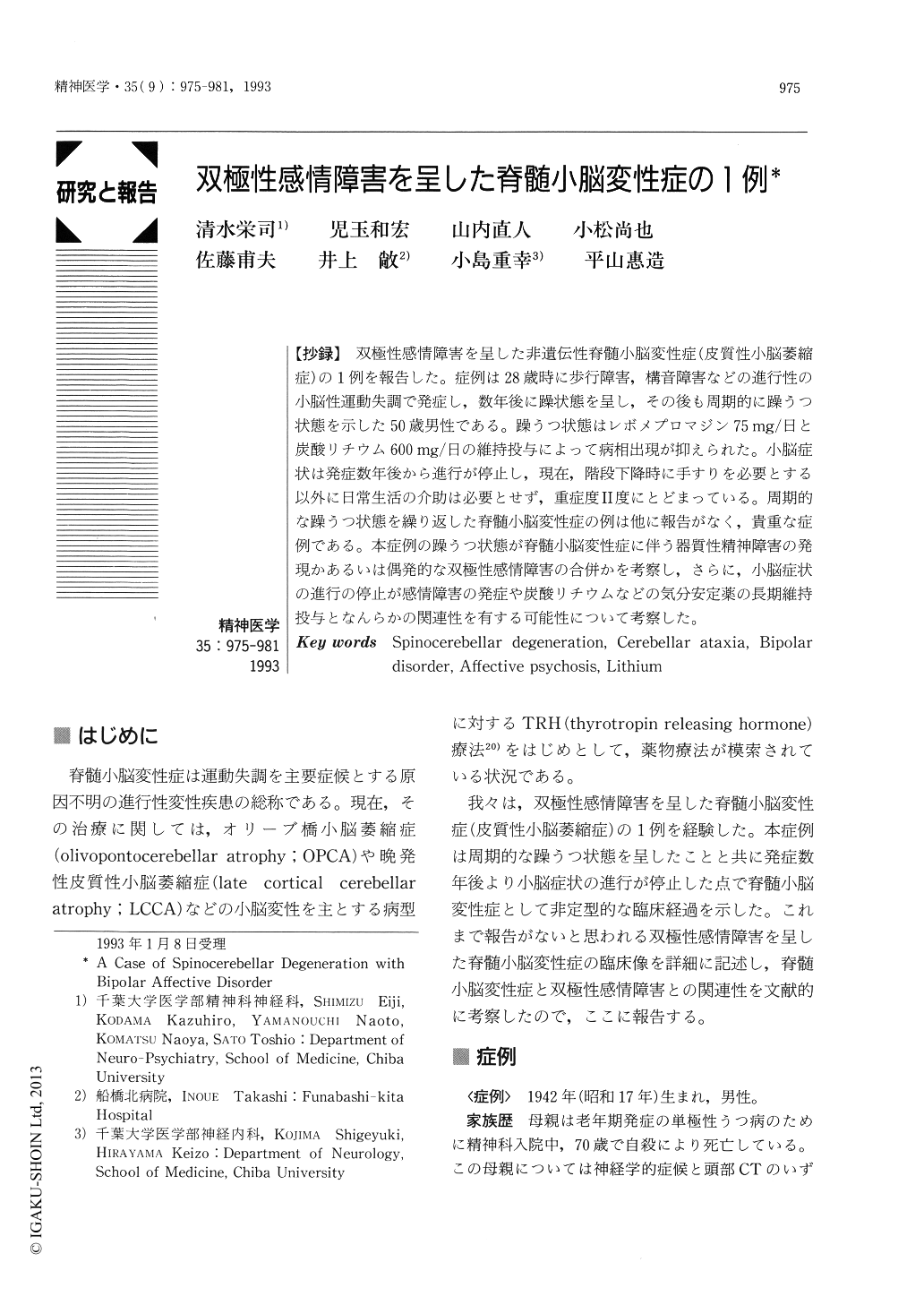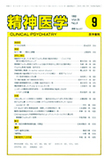Japanese
English
- 有料閲覧
- Abstract 文献概要
- 1ページ目 Look Inside
【抄録】 双極性感情障害を呈した非遺伝性脊髄小脳変性症(皮質性小脳萎縮症)の1例を報告した。症例は28歳時に歩行障害,構音障害などの進行性の小脳性運動失調で発症し,数年後に躁状態を呈し,その後も周期的に躁うつ状態を示した50歳男性である。躁うつ状態はレボメプロマジン75mg/日と炭酸リチウム600mg/日の維持投与によって病相出現が抑えられた。小脳症状は発症数年後から進行が停止し,現在,階段下降時に手すりを必要とする以外に日常生活の介助は必要とせず,重症度Ⅱ度にとどまっている。周期的な躁うつ状態を繰り返した脊髄小脳変性症の例は他に報告がなく,貴重な症例である。本症例の躁うつ状態が脊髄小脳変性症に伴う器質性精神障害の発現かあるいは偶発的な双極性感情障害の合併かを考察し,さらに,小脳症状の進行の停止が感情障害の発症や炭酸リチウムなどの気分安定薬の長期維持投与となんらかの関連性を有する可能性について考察した。
This report is a study on an atypical case of spinocerebellar degeneration accompanied by bipolar affective disorder.
The male patient, now 58 years of age, first showed progressive cerebellar ataxia and periodic manic depressive states at the age of 28. His condition gradually worsened in stages. The diagnosis of spinocerebellar degeneration (sporadic cortical cerebellar atrophy) was made, however no medication was prescribed. His condition was monitored. Since the age of 34, we began treating his bipolar mood disorder with a combination of lithium carbonate (600mg/day) and levomepromazine (75mg/day). Follow-up since the beginning of medication reveals that the progress of his cerebellar symptoms have stopped. Now, his gait is still ataxic, but he requires little support, except for the need of a handrail when descending stairways. His mood and cerebellar symptoms became stable after drug therapy was begun. This case suggests that long-term lithium therapy might prevent not only the recurrence of affective disorder but also the progression of spinocerebellar degeneration.

Copyright © 1993, Igaku-Shoin Ltd. All rights reserved.


